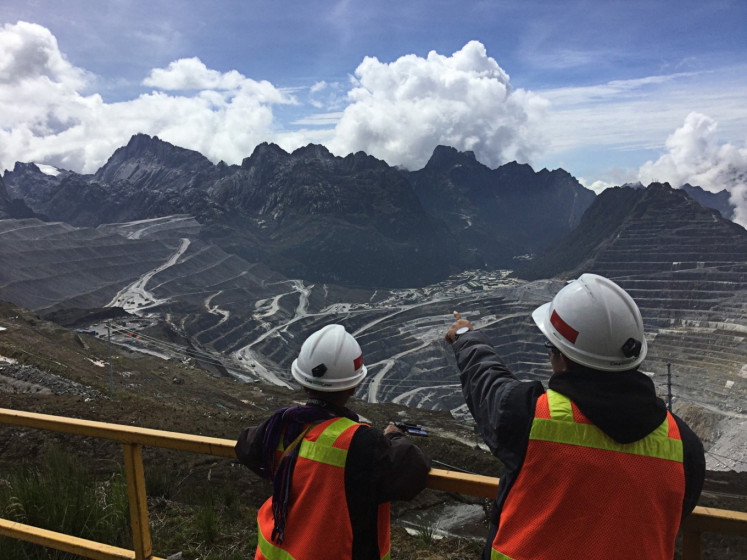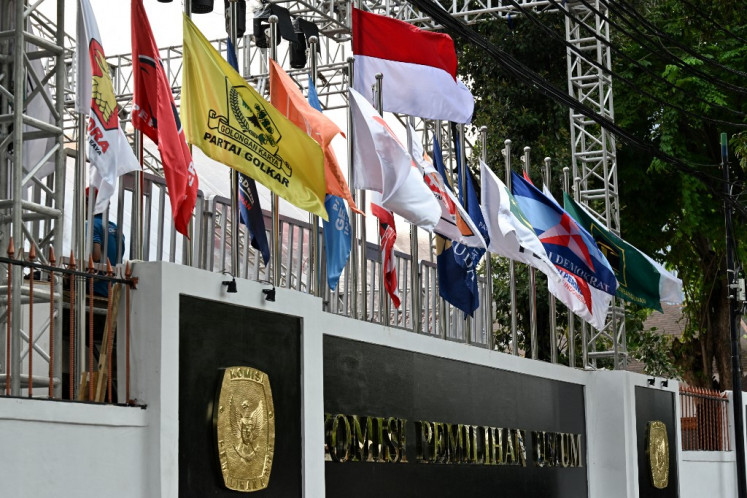Popular Reads
Top Results
Can't find what you're looking for?
View all search resultsPopular Reads
Top Results
Can't find what you're looking for?
View all search resultsTuban Petro ready to expand production capacity
Debt laden PT Tuban Petrochemical Industries (Tuban Petro) will go ahead with its expansion after the government finally agreed to bail out the East Java-based propylene producer
Change text size
Gift Premium Articles
to Anyone
D
ebt laden PT Tuban Petrochemical Industries (Tuban Petro) will go ahead with its expansion after the government finally agreed to bail out the East Java-based propylene producer.
Tuban Petro chief executive officer Sukriyanto said the company planned to build new factories and improve existing ones in an effort to strengthen the company’s finances in the future.
The first step will be to increase the production capacity of propylene in one of Tuban Petro’s subsidiaries, PT Polytama Propindo.
Polytama is projected to produce 240,000 metric tons of propylene by the end of this year. With the production expansion, Polytama is predicted to be able to produce up to 350,000 metric tons in 2020.
“The total cost of increasing the production capacity of propylene in Polytama is around US$17.5 million. We will also start operating our first expanded production line later this month,” said TubanPetro chief executive officer Sukriyanto in a press conference on Oct. 18.
The government now owns 95.9 percent of Tuban Petro following the conversion of the petrochemical company’s debts in the form of multiyear bonds amounting to Rp 2.62 trillion ($187 million) into equity.
“This conversion definitely resolves some of the country's unsolved receivables and at the same time it benefits Tuban Petro as it improves the company's capital structure,” the Finance Ministry's state assets director general Isa Rachmatarwata said at the same event.
With this bailout, Tuban Petro will be able to operate healthier and can be further expanded,” he added.
According to Isa, Tuban Petro and its subsidiaries, which include PT Trans Pacific Petrochemical Indotama (TPPI), PT Petro Oxo Nusantara and Polytama Propindo, can now be optimized by the government to develop the country’s petrochemical industry, reduce the current account deficit and increase state revenues in the form of dividends and taxes.
According to Sukriyanto, the plan to expand Polytama’s factory was first discussed two years ago.
“Furthermore, we are also planning to build a second factory for Polytama that will also produce propylene. The reason is because we still import 60 percent of our propylene, as Polytama can only produce 40 percent of the needs. With the new factory, we expect that we won’t rely on imported propylene anymore,” he added.
He also mentioned that the cost of building a second propylene factory was estimated to be around $400 million.
Tuban Petro also plans to construct a factory that produces the raw materials for propylene production. According to Sukriyanto, once the factory becomes operational, Tuban Petro could eliminate reliance on imported raw materials, and sell its own raw materials to other domestic petrochemical companies.
Sukriyanto said construction of the raw material factory would begin sometime next year, with total investment of about $300 million.
Tuban Petro’s most expensive investment will be building an integrated factory with TPPI, which is estimated to cost around $5 billion to $6 billion.
The integrated factory will produce olefin fiber, an essential base material for wallpapers,
carpets, ropes and vehicle interiors.
“The reason the integrated factory is quite expensive is because there will be extra costs for integrating the polypropylene factory and the polyethylene factory with the main olefin-producing factory.”
According to Sukriyanto, all of Tuban Petro’s planned projects will need around 3 to 4 years to be finished.
“As soon as our future factories begin operating in a few years, I believe Tuban Petro will be able to supress import costs for this sector and receive a larger income from exporting more propylene overseas.” (bry)










